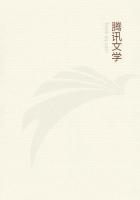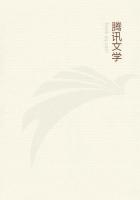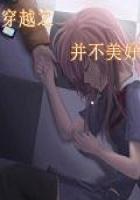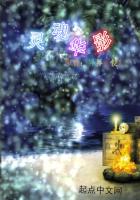People say, "It is all very well to talk about producing these different races, but you know very well that if you turned all these birds wild, these Pouters, and Carriers, and so on, they would all return to their primitive stock." This is very commonly assumed to be a fact, and it is an argument that is commonly brought forward as conclusive; but if you will take the trouble to inquire into it rather closely, I think you will find that it is not worth very much.The first question of course is, Do they thus return to the primitive stock? And commonly as the thing is assumed and accepted, it is extremely difficult to get anything like good evidence of it.It is constantly said, for example, that if domesticated Horses are turned wild, as they have been in some parts of Asia Minor and South America, that they return at once to the primitive stock from which they were bred.But the first answer that you make to this assumption is, to ask who knows what the primitive stock was; and the second answer is, that in that case the wild Horses of Asia Minor ought to be exactly like the wild Horses of South America.If they are both like the same thing, they ought manifestly to be like each other! The best authorities, however, tell you that it is quite different.The wild Horse of Asia is said to be of a dun colour, with a largish head, and a great many other peculiarities; while the best authorities on the wild Horses of South America tell you that there is no similarity between their wild Horses and those of Asia Minor; the cut of their heads is very different, and they are commonly chestnut or bay-coloured.It is quite clear, therefore, that as by these facts there ought to have been two primitive stocks, they go for nothing in support of the assumption that races recur to one primitive stock, and so far as this evidence is concerned, it falls to the ground.
Suppose for a moment that it were so, and that domesticated races, when turned wild, did return to some common condition, I cannot see that this would prove much more than that similar conditions are likely to produce similar results; and that when you take back domesticated animals into what we call natural conditions, you do exactly the same thing as if you carefully undid all the work you had gone through, for the purpose of bringing the animal from its wild to its domesticated state.I do not see anything very wonderful in the fact, if it took all that trouble to get it from a wild state, that it should go back into its original state as soon as you removed the conditions which produced the variation to the domesticated form.There is an important fact, however, forcibly brought forward by Mr.Darwin, which has been noticed in connection with the breeding of domesticated pigeons; and it is, that however different these breeds of pigeons may be from each other, and we have already noticed the great differences in these breeds, that if, among any of those variations, you chance to have a blue pigeon turn up, it will be sure to have the black bars across the wings, which are characteristic of the original wild stock, the Rock Pigeon.
Now, this is certainly a very remarkable circumstance; but I do not see myself how it tells very strongly either one way or the other.Ithink, in fact, that this argument in favour of recurrence to the primitive type might prove a great deal too much for those who so constantly bring it forward.For example, Mr.Darwin has very forcibly urged, that nothing is commoner than if you examine a dun horse--and Ihad an opportunity of verifying this illustration lately, while in the islands of the West Highlands, where there are a great many dun horses--to find that horse exhibit a long black stripe down his back, very often stripes on his shoulder, and very often stripes on his legs.I, myself, saw a pony of this description a short time ago, in a baker's cart, near Rothesay, in Bute: it had the long stripe down the back, and stripes on the shoulders and legs, just like those of the Ass, the Quagga, and the Zebra.Now, if we interpret the theory of recurrence as applied to this case, might it not be said that here was a case of a variation exhibiting the characters and conditions of an animal occupying something like an intermediate position between the Horse, the Ass, the Quagga, and the Zebra, and from which these had been developed? In the same way with regard even to Man.Every anatomist will tell you that there is nothing commoner, in dissecting the human body, than to meet with what are called muscular variations--that is, if you dissect two bodies very carefully, you will probably find that the modes of attachment and insertion of the muscles are not exactly the same in both, there being great peculiarities in the mode in which the muscles are arranged; and it is very singular, that in some dissections of the human body you will come upon arrangements of the muscles very similar indeed to the same parts in the Apes.Is the conclusion in that case to be, that this is like the black bars in the case of the Pigeon, and that it indicates a recurrence to the primitive type from which the animals have been probably developed? Truly, I think that the opponents of modification and variation had better leave the argument of recurrence alone, or it may prove altogether too strong for them.
To sum up,--the evidence as far as we have gone is against the argument as to any limit to divergences, so far as structure is concerned; and in favour of a physiological limitation.By selective breeding we can produce structural divergences as great as those of species, but we cannot produce equal physiological divergences.For the present I leave the question there.
Now, the next problem that lies before us--and it is an extremely important one--is this: Does this selective breeding occur in nature?















